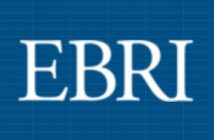As retirement needs expand, living costs increase and people live longer, many retirees are simply not prepared for the retirement they once envisioned. Today, experts and financial planners agree that home equity is an increasingly important asset to consider when looking at sources of retirement income.
With over 68% of retirees making a mortgage payment after retirement, a reverse mortgage may be able to pay off an existing mortgage, thus freeing up hundreds of dollars per month in principal and interest payments. According to a recent article by AARP, “the average monthly Social Security benefit is $1,200, which isn’t enough for Oregonians to depend on in retirement for basic needs like heat, food and medications”.
How does a reverse mortgage work? This specially designed loan allows eligible homeowners who are 62 years or older to convert a portion of home equity into cash. The loan is unique in that you do not pay a monthly mortgage payment. You are required to pay property taxes, homeowners insurance, maintain the home and live in the home as your primary residence. The loan is repaid, with interest, when one of the following events happens: you move out of the home, you sell the home or the last borrower passes away.
There are four disbursement options: monthly payments, line of credit, combination of both or lump sum payment. The most popular option is the line of credit which can never be cancelled or reduced, and will continue to grow over time (another unique feature). The line of credit is a standby cash reserve that will be there when you need it and for whatever reason.
What are the most common uses for a reverse mortgage? Supplement monthly income, delay taking social security, home modifications or repairs, pay off an existing mortgage, pay off debt or medical expenses, pay for long term care, preserve other assets, establish a cash reserve for emergencies, buy a second home. Proceeds from a reverse mortgage are not taxable.
Reverse mortgages are government insured and can provide a smart and safe way to live more comfortably. If you are concerned about having enough money to get through retirement, a reverse mortgage might be right for you.
Shelley Nelson is a Reverse Mortgage Specialist with Directors Mortgage in Bend. Prior to this, Shelley was a HUD-approved reverse mortgage housing counselor with a local non-profit agency and has over 20 years of experience in financial service and mortgage related industries. Shelley has a passion for educating seniors and their families about the use of home equity to help seniors live a financially comfortable retirement. Directors Mortgage is a member of the National Reverse Mortgage Lenders Association (NRMLA) and rated A+ by the Better Business Bureau.





